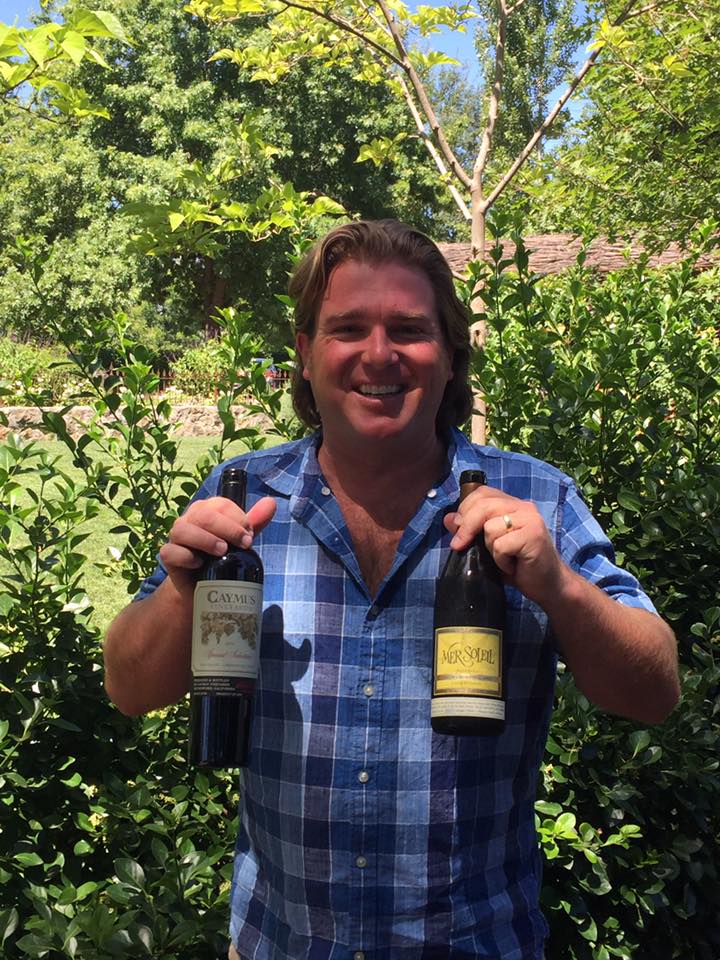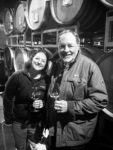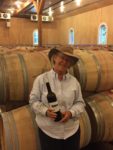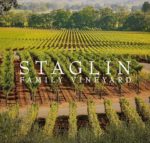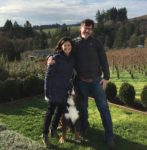Caymus Vineyards
The story of a passion for Cabernet Sauvignon but also of a family deeply rooted in the Napa Valley
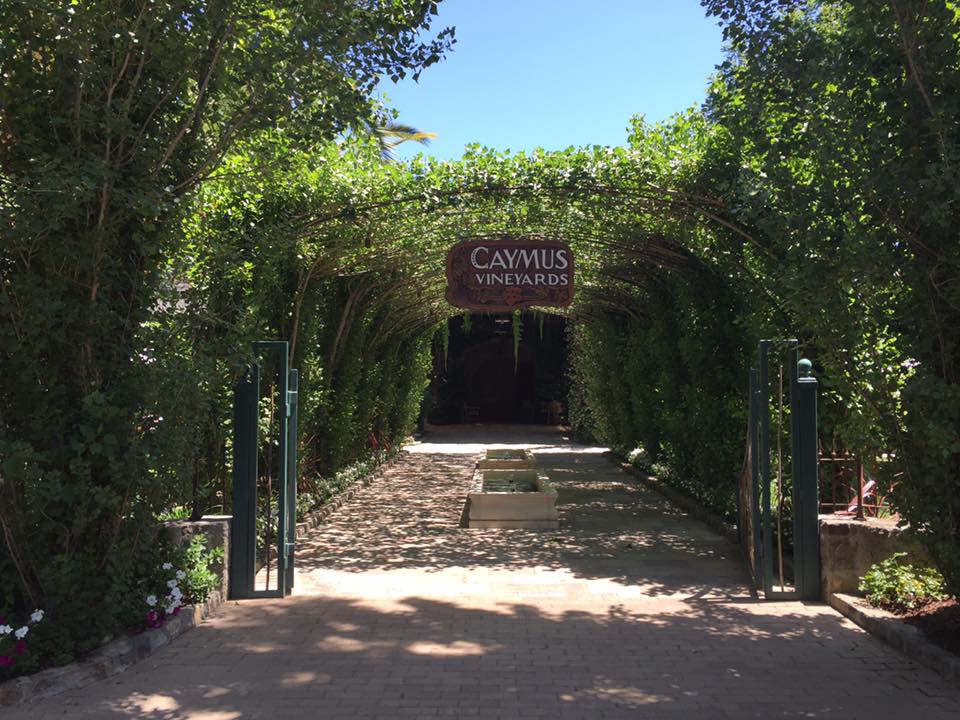 Caymus is a family winery in Napa Valley. Although the family’s agricultural roots date back more than a century. Arriving in Napa Valley in the middle of the 19th century the Wagner family began with the creation of a ranch and a small farming activity. In 1940 the Wagners planted for the first time a few hectares of vines but with the sole objective of selling the grapes to other local producers. The turning point was in 1971 when Charlie Wagner asked his son, Chuck, who had just finished his studies if he was interested in creating a winery here. Charlie Wagner and his wife, Lorna, had in mind that if he refused he would sell the estate and move to Australia. To their great satisfaction Chuck was interested, excited to create a wine estate.
Caymus is a family winery in Napa Valley. Although the family’s agricultural roots date back more than a century. Arriving in Napa Valley in the middle of the 19th century the Wagner family began with the creation of a ranch and a small farming activity. In 1940 the Wagners planted for the first time a few hectares of vines but with the sole objective of selling the grapes to other local producers. The turning point was in 1971 when Charlie Wagner asked his son, Chuck, who had just finished his studies if he was interested in creating a winery here. Charlie Wagner and his wife, Lorna, had in mind that if he refused he would sell the estate and move to Australia. To their great satisfaction Chuck was interested, excited to create a wine estate.
From the beginning of the Winery the family focused on Cabernet Sauvignon. The first vintage produced and bottled under the name “Caymus” was 1972. At the time only 2,880 bottles had been produced. Since then, and as opportunities have grown, Caymus has grown to 350 acres planted today (approximately 142 hectares). Currently the property produces 65,000 cases (780,000 bottles) including 3 brands: Caymus, MerSoleil and Conundrum.
Today Caymus remains and remains a 100% family history. The estate is managed by Chuck Wagner and his three children: Charlie, Joe and Jenny.
Let’s go together to meet Charlie Wagner, his real name Charles F. Wagner …
Where does the name Caymus come from?
“Caymus” comes from “Rancho Caymus” which is the name given to this place when California was Mexican. All this locality had been given in 1836 by the Mexican governor, Nicolás Gutiérrez, to the American colonel George Yount who had kept its name. This ranch included Caymus but also other small surrounding communities such as Rutherford, Oakville and Rutherford. The name “Caymus” referred to an Indian tribe related to Mishewal-Wappo
 Why do you make wine? Why did you make that choice?
Why do you make wine? Why did you make that choice?
“For me it’s a family tradition that goes back a long time, as far back as the family is rooted in California. We have been making wine here since the middle of the 19th century, which for California is very old.
I grew up here at the Winery just like my son _. I have always helped the family to work the wine. Honestly harvesting was very hard but I liked it just like working in the winery. As a child I found it fun. I really enjoyed making my first Chardonnay when I was 15 or 16 years old. In hindsight I would say that it was then that I knew that I wanted to make wine, to have this life and this lifestyle.
I like the style of wine that I have! I like to meet people, our visitors. I am a wine consumer, an epicurean, so I like to taste the wines made by other winemakers. I taste wines from elsewhere every day. I am very proud of the wines we produce but I am also a big fan of white Burgundy wines! It’s my guilty sin, I could drink it every day! I also like white Bordeaux a lot. It’s two regions have unique styles and soils that make them great and beautiful wines. ”
What is the signature of Caymus wines? What makes it possible to recognize them in blind tasting?
“I think our signature in Caymus Cabernet Sauvignon is the creamy texture. There is always sweetness, smoothness in our wines. We make mature wines that push the limits … You know 20 years ago we could not make this style of wine, but today yes, thanks to the better scientific knowledge and the improvement of the tools of production. We make soft, unctuous wines with low acidity. The finesse, the beautiful quality and the richness of our tannins are also very characteristic of Caymus. Our tannins are never aggressive but very smooth.
I think what is also very characteristic in our production is that we do not make ‘Single Vineyard’ wines but we assemble the grapes from our different Napa vineyards. Each of our vineyards has its own qualities and defects, once assembled they complement each other perfectly. Our Cabernet Sauvignon is a good representative, in a single bottle, of what the diversity of the Napa Valley can bring to a wine. ”
 If you were to describe Caymus wines in a nutshell, what would you say?
If you were to describe Caymus wines in a nutshell, what would you say?
“I would say opulent, rich, colorful, elegant and offers a texture / material gourmand and characteristic of our house. What I mean is that even people who tell us they do not like red wines when they taste our wines can appreciate them. Generally they tell us that they like the smooth texture of our wines. ”
Why don’t you produce Sauvignon Blanc at Caymus?
” That’s a very good question. We were doing it in the 1990s but we stopped producing it in 1997. We wanted to stop producing wines other than Cabernet Sauvignon under the Caymus label. We want Caymus to be known only for Cabernet Sauvignon. Little exception, we continue to produce wines from the Zinfandel but it is really in very small quantities and only available here at the Winery. That’s why the family has launched other labels such as MerSoleil, Conundrum … The first is made from single varietal wines and Conundrum for wines from blends.
For the record, my sister is currently producing Sauvignon Blanc, which is very good and quite similar to what we produced before under the Caymus label. ”
Do you have an anecdote about the property / family?
“I would say ‘family’ and ‘heritage’, I would say it’s our best story. I am very proud of our story, that my great-grandfather came here 150 years ago. It was a very different place from today, there was not much. I’m not saying that at the time it was a horrible place, no. I’m just saying that at the time there was not much in Napa, there was not an economy and comfort like today. At the time we came here out of necessity, it was a difficult land to work. Each of its pioneering families brought his little stone to the building. They all helped the Napa Valley to build, to be recognized … to have the qualitative image that Napa today. ”
Thanks to Charles F. Wagner and the Caymus team.
Choukroun Chicheportiche Jonathan
Caymus Winery

